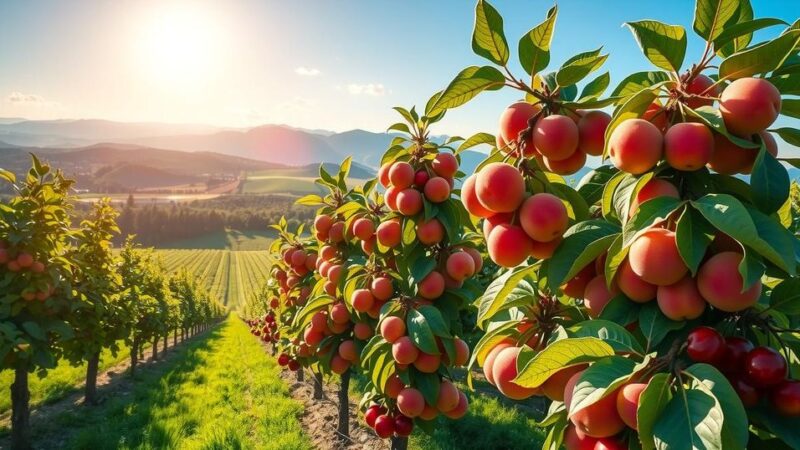Starbucks is investing in two new coffee farms in Central America to enhance its coffee supply’s resilience against climate change. This expansion will facilitate research on hybrid coffee varieties and their adaptability to diverse agricultural conditions. The initiative aims to combat the adverse effects of extreme weather on coffee production while addressing the challenges faced by local farmers. Starbucks plans to further extend its global agricultural strategy by acquiring additional farms in Africa and Asia.
Starbucks is taking significant steps to mitigate the effects of climate change on its coffee supply through strategic investments in two innovative coffee farms located in Central America. The globally recognized coffee retailer, which is accountable for purchasing three percent of the world’s coffee supply, aims to safeguard this resource in light of recent challenges resulting from extreme weather conditions. Among the newly acquired farms is a site in Costa Rica and the company’s inaugural farm in Guatemala. These acquisitions will facilitate research into hybrid coffee varieties and their adaptability to varying elevations and soil conditions, addressing an essential need for sustainability in coffee production. Historically, the company pioneered its coffee farming initiative over a decade ago, marking this expansion as an integral part of its ongoing commitment to sustainability and research. Production has become increasingly vulnerable due to factors such as rising temperatures, unexpected frosts in Brazil, and repeated occurrences of La Niña, all of which have diminished coffee yield. According to Roberto Vega, the Vice President of Global Coffee Agronomy, Research and Development, and Sustainability at Starbucks, “Frosts in Brazil have already impacted volumes of up to 50%, so we can have really severe impact in terms of product availability, and that is more and more regular in the whole Coffee Belt.” This statement encapsulates the pressing nature of the situation faced by coffee producers worldwide. At these new farms, Starbucks plans to investigate the performance of hybrid coffee plants, which are recognized for enhanced productivity and resilience against coffee leaf rust—a detrimental fungus that thrives in regions affected by climatic changes. Vega notes the specificity of results derived from hybrids stating, “We can develop new hybrids, but the fact that a hybrid works in one country and under certain conditions doesn’t mean that it’s going to be working everywhere.” Furthermore, Starbucks is keen to address additional obstacles encountered by local farmers that extend beyond climate change. The Guatemalan farm, characterized by depleted soil and low productivity, exemplifies challenges that many cultivators face today. Vega expressed an intentional focus on such properties: “The farm is not necessarily in good shape, and that’s exactly what we were looking for. We wanted a farm that really mirrors the challenges that farmers are having today.” In Costa Rica, adjacent to an existing plantation named Hacienda Alsacia, Starbucks intends to introduce advanced technologies, such as drones and mechanization, as a solution to the labor shortages that afflict many agricultural sectors in Latin America. Going forward, Starbucks has articulated plans to extend its farming initiative by acquiring additional properties in Africa and Asia, thereby expanding its agricultural footprint across the Coffee Belt and reinforcing its dedication to sustainable coffee production.
Starbucks, a global leader in coffee retail, recognizes that climate change poses a substantial threat to the coffee supply chain. As it sources three percent of the world’s coffee, the company is actively addressing the challenges presented by rising temperatures, frost occurrences, and extreme weather by establishing innovation farms. These farms facilitate the study of hybrid coffee plants’ resilience and productivity under varying environmental conditions, essential for sustaining coffee supply and price stability in the face of supply shortages, which have risen in consumer prices over the past few years.
Starbucks’ investment in innovation farms underscores its proactive approach to safeguarding its coffee supply against the looming threats of climate change. By focusing on research related to hybrid coffee varieties and implementing advanced agricultural technologies, the company is not only addressing immediate production challenges but also paving the way for sustainable coffee farming practices. Through these efforts, Starbucks aims to ensure consistent quality and availability of its coffee offerings, thus maintaining its position as a key player in the global coffee market.
Original Source: www.cnbc.com







